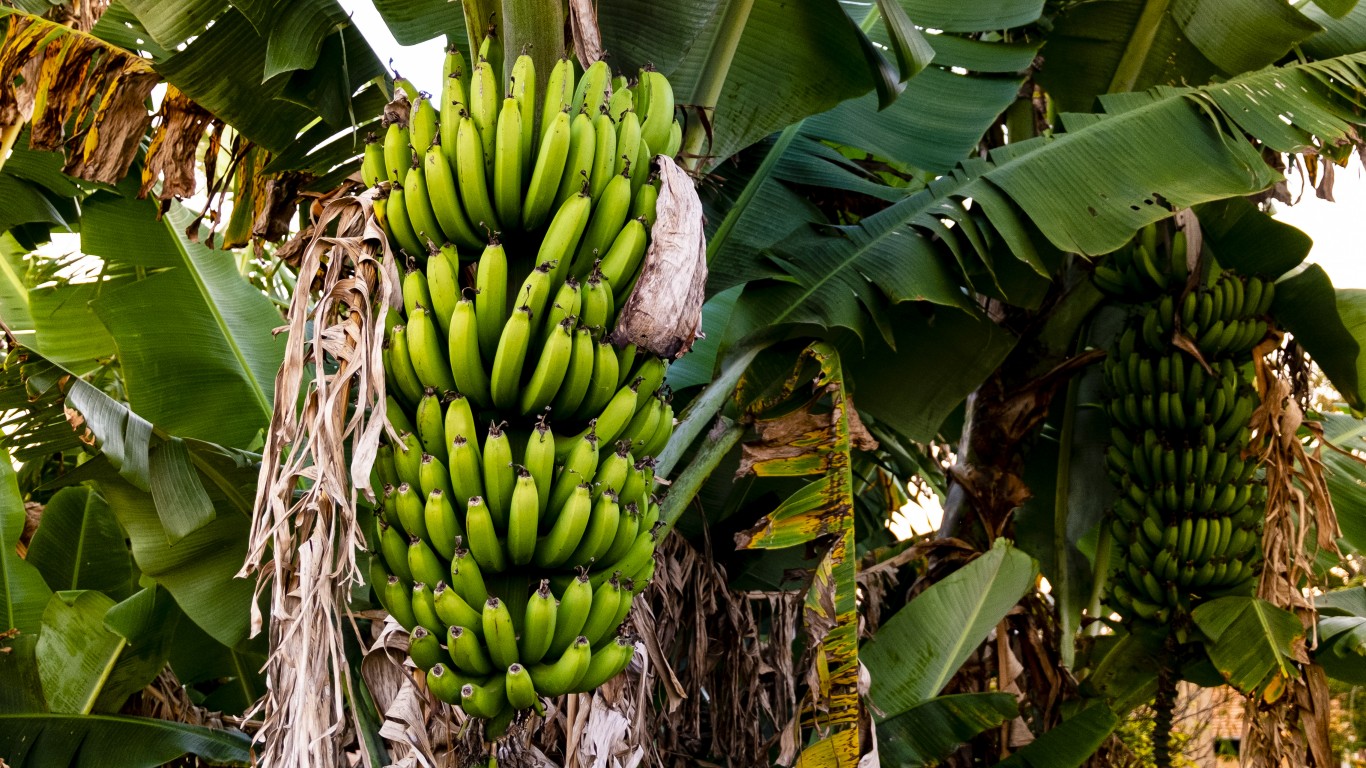
The new year looks like it will kick off with some serious extremes in some very stressed markets. Commodities in general, and oil particularly, have been taken to the woodshed in a way not seen since the 2008 financial crisis.
The adage “buy low, sell high” sounds simple enough, but in practice is a very difficult thing to actually pull off. When stocks are low, the natural inclination is to stay away and let someone else pick the bottom. That makes the buy low part very difficult. When they’re high, people want to pile in and catch the rest of the ride, and the higher they go the more bullish investors tend to get. That makes selling high equally tricky. To both buy low and sell high takes a lot of nerve.
In this 247 Wall St. series, we will focus on four stocks to buy and hold for 2016, each group of four in a different sector. The first focus will be commodity stocks. It is in these times of extreme stress that the commodity complex is now experiencing when buying low becomes possible. For those brave enough to pull the trigger and hold on for 2016, good commodity stocks are at basement prices.
Exxon Mobil
Unlike many of its peers, Exxon Mobil Corp. (NYSE: XOM) has taken the collapse in oil prices in stride. It is still making between $4 billion and $5 billion per quarter in 2015 without any significant cutbacks. Chevron Corp. (NYSE: CVX), though also a decent pick, has been struggling a bit more with the current environment, posting an operating loss in the second quarter of $2.16 billion. Chevron also has been cutting back on future projects and production, meaning it will not be in a position to fully capitalize like Exxon will once oil markets rebound. Think of Exxon as the OPEC of American oil companies. It can produce as much oil as it wants at a profit regardless of price, live on a little less and still come out on top.
Once oil recovers, likely at some point in 2016, Exxon will lead the sector higher.
Potash
Potash Corp. of Saskatchewan Inc. (NYSE: POT) is Exxon’s parallel in the mining space. Though certainly not as big, and Potash has cut back production lately in response to falling mineral prices, it is in fairly good shape for a company in an industry in free fall. Skirting lows not seen since February 2007, the stock offers great value as a dividend play, currently yielding 8.8%. The company is still pulling a consistent profit, though smaller than it used to, but that says a lot in the current environment. The main drawback is that the high dividend may be cut if basic materials prices don’t rebound soon, because Potash is paying nearly its entire bottom line to shareholders. Even if it is cut in half, it’s still a good yield.
The balance sheet is also relatively healthy, with a moderate amount of leverage, about 30% of market cap. If Potash is this healthy in times of stress, imagine how it can perform when prices rise.
Mosaic
Mosaic Co. (NYSE: MOS) is similar to Potash, though based in Florida and Louisiana with operations globally in Brazil, China and India. It’s been a rough year for the stock, but the company isn’t losing money. Once again, here is low to moderate leverage and a good chance for a rebound on a wider rebound in the commodities complex. We have finally reached long-term support for Mosaic, so technicals and fundamentals line up in this case. The price-to-earnings (P/E) is now below 9, which either means the company is dying or it’s just very cheap and sentiment is very low.
Judging by the numbers, Mosaic is not dying. It’s done better, but so have all commodity stocks at this point. The rebound could be impressive with this one when commodities finally turn around.
Agrium
Since 2008, Agrium Inc. (NYSE: AGU) has been a staple for a defensive portfolio in the agriculture sector. It is not over-leveraged, with debt below 40% market cap, and hasn’t reacted too negatively to falling agriculture prices. If Agrium can weather this type of environment, it will do well on the rebound. This is a type of stock with limited potential downside, barring an all-out catastrophe in food prices. A conservative play, it probably won’t gain as much as oil stocks on the way up, but it’s a good defensive allocation that brings less worry than trying to pick a bottom in crisis commodity markets like oil. In other words, it will put some emotional stability into a buy-low portfolio.
Take This Retirement Quiz To Get Matched With An Advisor Now (Sponsored)
Are you ready for retirement? Planning for retirement can be overwhelming, that’s why it could be a good idea to speak to a fiduciary financial advisor about your goals today.
Start by taking this retirement quiz right here from SmartAsset that will match you with up to 3 financial advisors that serve your area and beyond in 5 minutes. Smart Asset is now matching over 50,000 people a month.
Click here now to get started.
Thank you for reading! Have some feedback for us?
Contact the 24/7 Wall St. editorial team.
 24/7 Wall St.
24/7 Wall St.


